What we know about Keir Starmer’s plan for the NHS
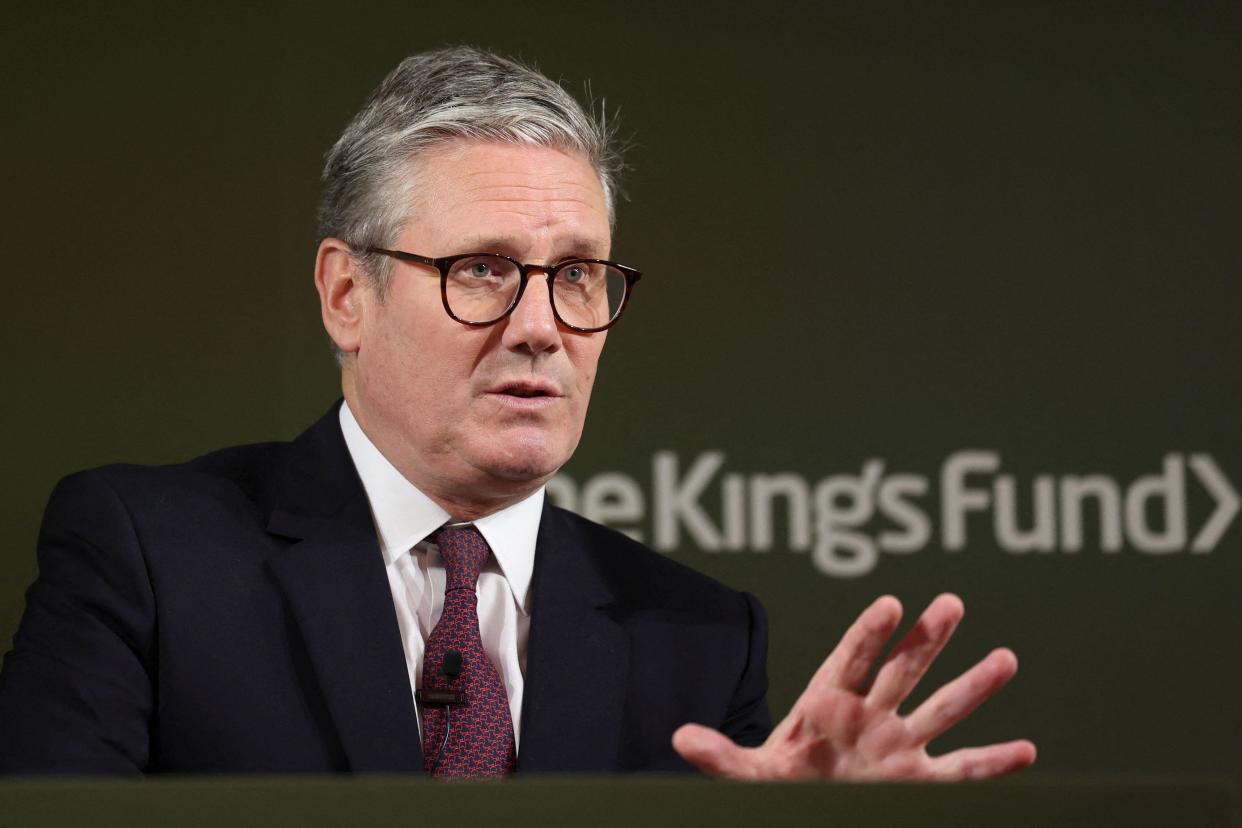
Sir Keir Starmer has set out his 10-year plan to improve the NHS as he warned that it must “reform or die”.
In a major speech on Thursday, the prime minster said that tackling long waiting lists, improving the nation’s health and shifting the focus towards community services were the vital changes that the NHS needs. He was speaking following the publication of a damning report from Lord Darzi, that concluded that the NHS is “in serious trouble”.
The rapid review, completed in nine weeks, diagnoses the problems in the NHS in England and sets out themes for the government to incorporate into a decade-long plan for reforming the health service.
The prime minister said he would “accept the challenge” of fixing the NHS but warned it would be “measured in years, not months”. He set out four key areas where the NHS urgently needs fixing.
No money without reform

While the health service needs to be fully funded, Starmer said that it was not down to “working people” to simply be asked to pay more for it. Instead, the prime minister made clear that the NHS must instead reform if it is to improve and progress.
He said: “The NHS is at a fork in the road, and we have a choice about how it should meet these rising demands. Raise taxes on working people to meet the ever-higher costs of an ageing population – or reform to secure its future.
“We know working people can’t afford to pay more, so it’s reform or die.”
He went on: “Reform does not mean just putting more money in. Of course, even in difficult financial circumstances, a Labour government will always make the investment in the NHS that is needed, but we have to fix the plumbing before we turn on the taps.
“So, hear me when I say this, no more money without reform. I’m not prepared to see even more of your money spent on agency staff who cost £5,000 a shift, on appointment letters which arrive after the appointment, or on paying for people to be stuck in hospital just because they can’t get the care they need in the community.”
Neighbourhood health

During his speech, Starmer said that the health service needs to become more local, dubbing it the “neighbourhood health service”. This would include a return of family doctors and relieving the strain on hospitals by introducing more healthcare in local communities.
Starmer said this would mean “more tests, scans, healthcare offered on high streets and town centres, improved GP access, bringing back the family doctor, offering digital consultations for those that want them, virtual wards and more patients safely looked after in their own homes where we can deal with problems early before they are off work sick and before they need to go to hospital”.
However, The King‘s Fund have highlighted some of the current pitfalls to the use of digital technologies within community healthcare, particularly in their efficiency and connectivity. The healthcare think-tank wrote that district nurses visiting homes spoke of “struggles connecting to the internet, poor battery life and heavy laptops”.
But they suggested that bolstering digital technologies in GPs, pharmacies, community trusts and care providers could help reduce the number of people needing to visit over-stretched hospitals.
The King’s Fund suggested that NHS and social care staff in the community “should be involved in developing or selecting systems that will work best for them” to maximise efficiency.
Digitising the health service

Starmer said one of the first moves was to move from an analogue to a digital NHS. Citing the NHS app, the PM said that we have “got to use technology to empower patients and give them control over their healthcare”.
He said: “Take an innovation like the NHS app. This could be a whole digital front door to the NHS – appointments, self referral reminders for check-ups and screenings, patients in control of their own data. healthcare so much more transparent…
“We’ve got to have fully digital patient record, so that crucial information is there for you whenever you go to the NHS.”
When questioned by a journalist about whether the public face 10 years of waiting in A&E due to the length of his reform plans, Starmer said this was a “classic example of where you need more technology” and that the government is already working on this. He said that people were mainly waiting for test results and “much better use of technology” will make a difference.
The King’s Fund said there are “digital challenges” that have yet to be overcome, including allowing access to health and care information across multiple organisations. They also said that phone apps and notifications on tablets are good starting points to build on patients’ existing digital skills.
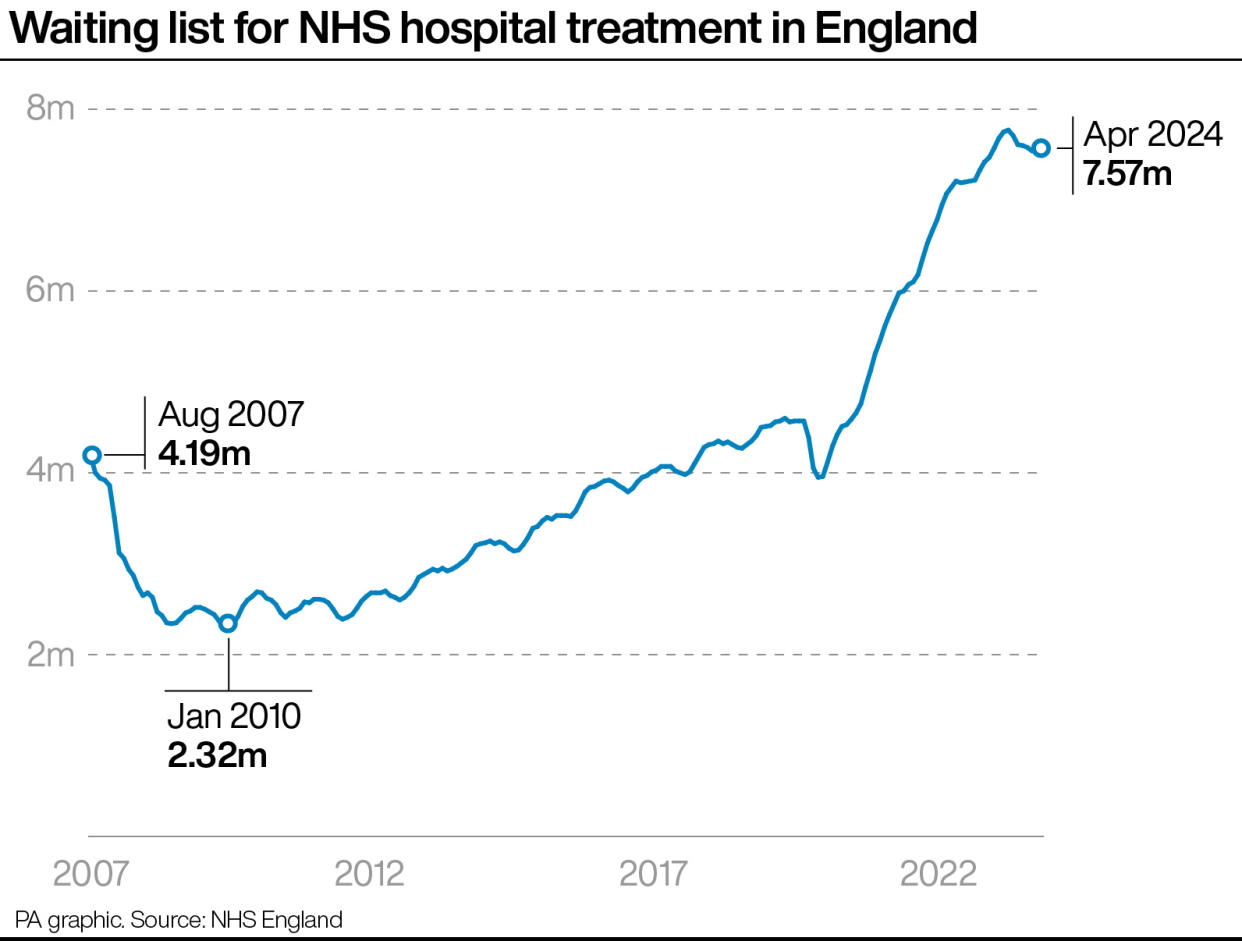
Figures from NHS England show that in April this year, the waiting list for NHS hospital treatment in England stood at 7.57 million – a substantial increase from the a low of 2.32 million in January 2010, several months before Labour lost power and the coalition government took over.
Since then there has been a steady increase, with the level reaching over four million – the same figure as when the waiting list began to fall from August 2007. Massive increases were seen as the pandemic hit and operations were delayed, postponed or cancelled as hospitals prioritised COVID patients.
Historic problems
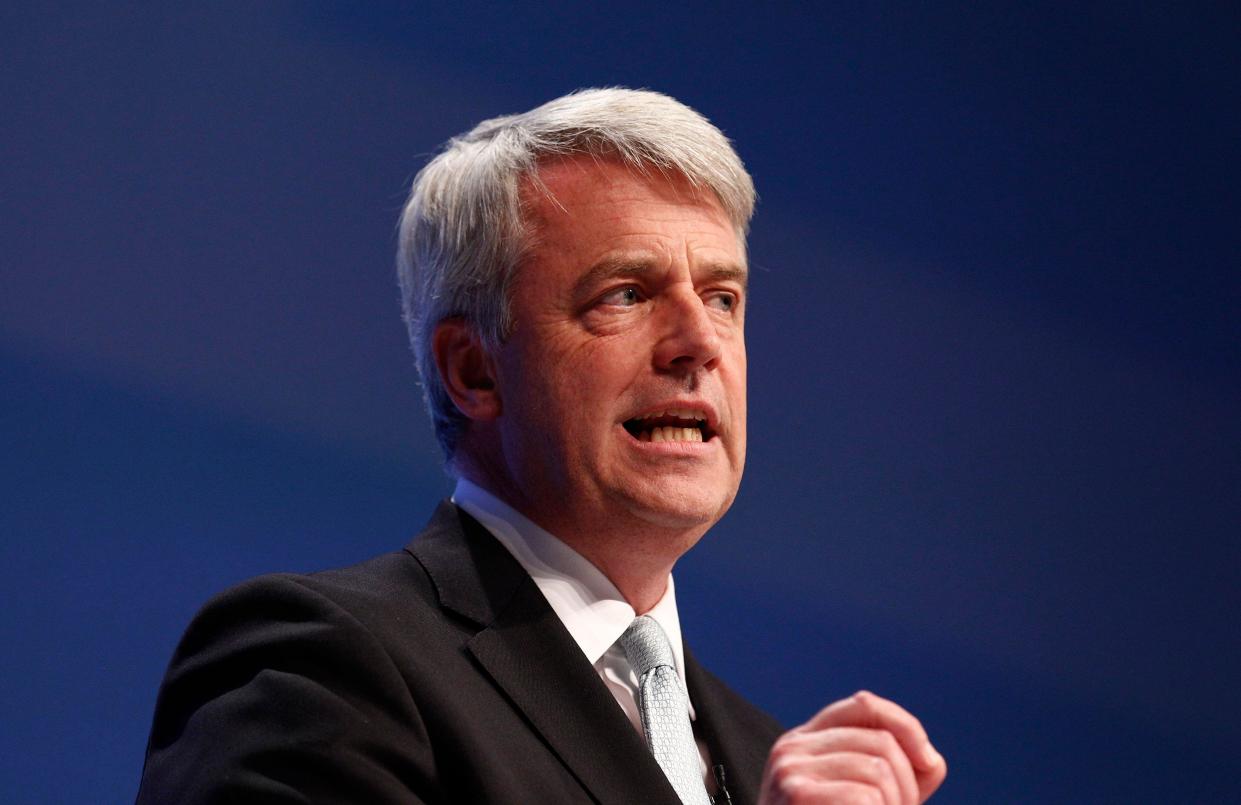
Throughout his speech, Starmer placed the blame on the current state of the NHS on the previous Conservative government. He said COVID alone could not be blamed for delayed or cancelled operations, insisting that the Tory handling of the health service made things worse.
He said: “The NHS delayed, cancelled or postponed far more routine care during the pandemic than any comparable health system. And why? Because our NHS went into the pandemic in a much more fragile state, fewer doctors, fewer nurses, fewer beds than most other high income health systems.”
Starmer said this was because of the “ideologically-driven, top down reorganisation of 2012” championed by former health secretary Andrew Lansley. The prime minister said that this was “hopelessly misconceived” and cited the Darzi report labelling Lansley’s reforms as “a calamity”.
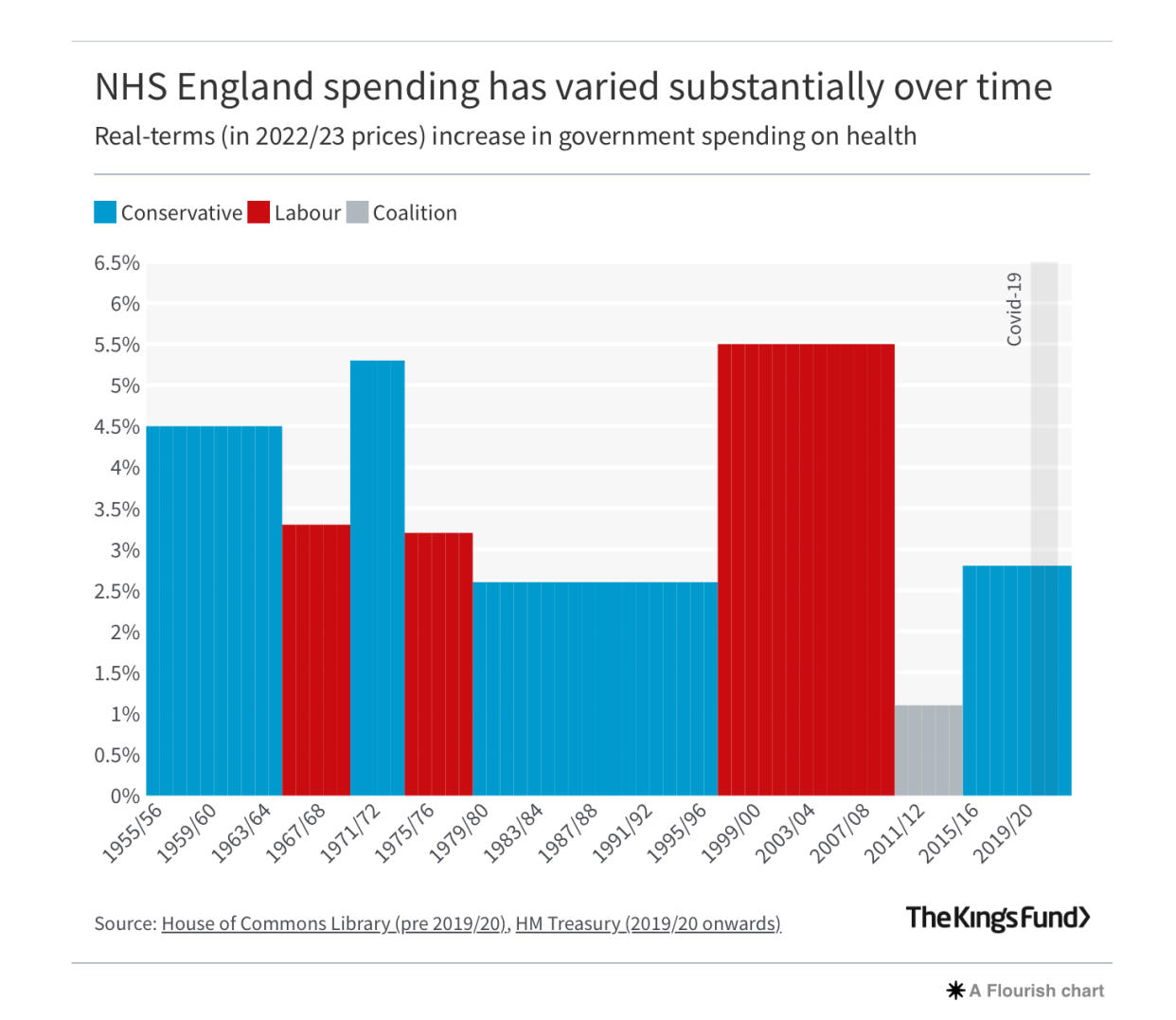
Official figures show that public funding for health services in England stood at £181.7bn in 2022/23, when the Tories were still in power. Most of this (£171.8bn, or 94.6%) went on staff salaries, medicines and other day-to-day items. The rest was spent mainly on new buildings or equipment.
In recent years, spending has increased by 2.8%. The previous government’s budget in spring this year showed slightly lower levels of spending planned for 2023/24 and 2024/25 – however, this decrease could be due to additional COVID investment coming to an end, according to the King’s Fund.
What has the reaction been?
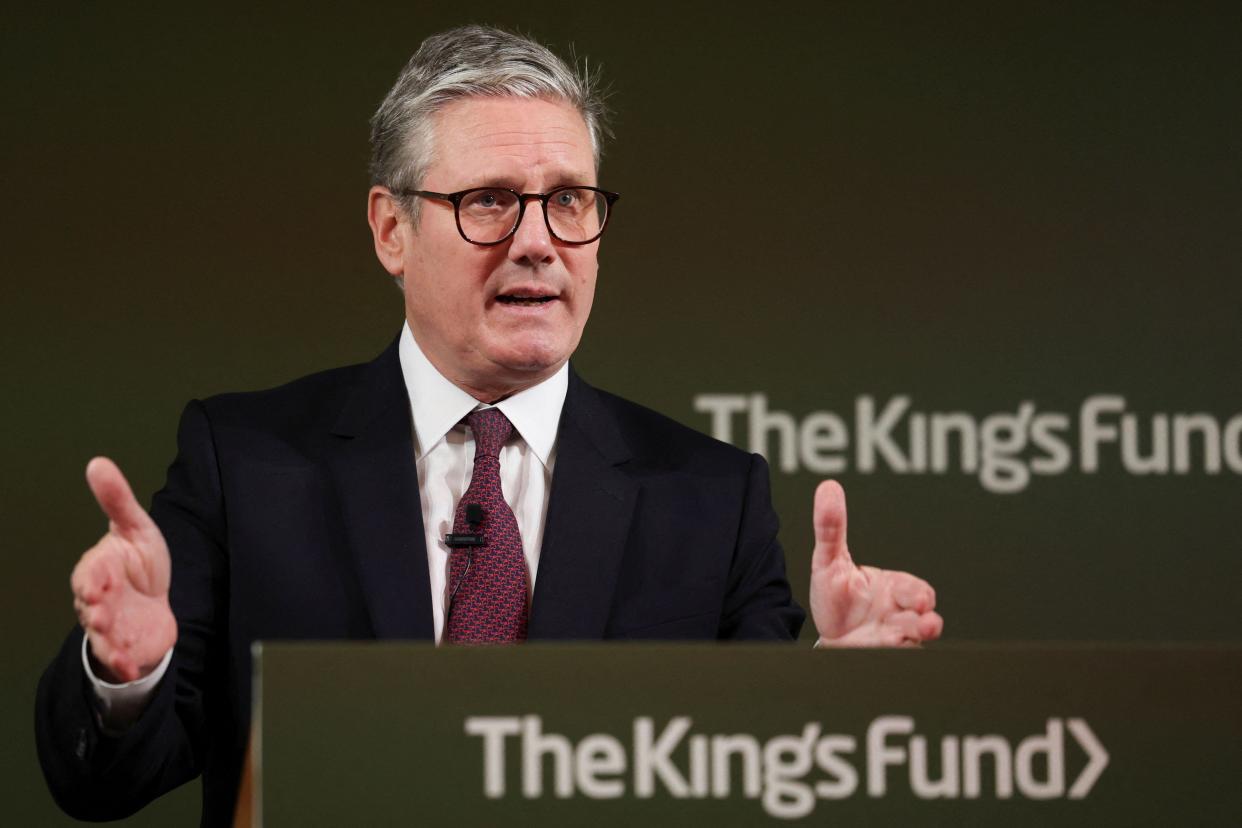
Reaction to the prime minister’s reforms from healthcare providers and unions has generally been supportive. However, some warned of the “sheer scale of the challenge” that faces the new government.
Responding to Starmer’s speech, Sir Julian Hartley, chief executive of NHS Providers, said: “The NHS is down but not out. The sheer scale of the challenge facing trust leaders and their teams as they strive to get the health service back on track is plain for all to see...
“To build an NHS fit for the future, the NHS needs to work differently and go further and faster to improve care for patients. With the 10-year plan for the NHS on the horizon, trust leaders are ready and willing to work with the government to get to grips with the challenges facing the health and social care.”
Royal College of Nursing general secretary and chief executive Nicola Ranger, said: “The prime minister’s mission to repair a broken NHS is the right one and today’s report demonstrates why that task must start now. The nursing profession stands ready to work in partnership with government.”
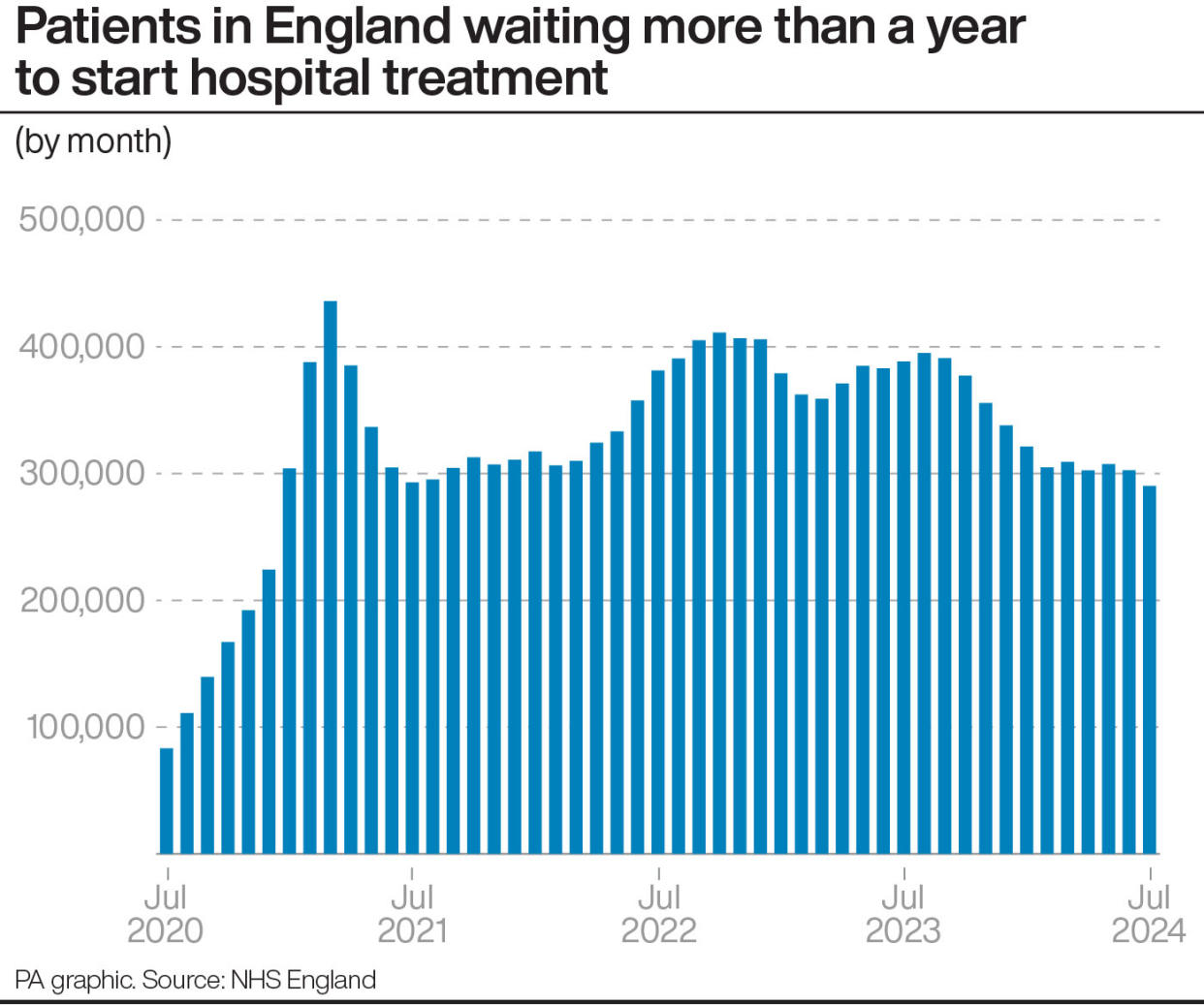
The Nuffield Trust said that the Darzi report’s findings are “deeply troubling” while the Health Foundation said the report lays bare the “scare of the crisis” in the health service.
NHS Confederation chief executive Matthew Taylor added: “NHS leaders will recognise Lord Darzi’s diagnosis of the NHS’ problems and will work with the government to help address them.”
Shadow health secretary Victoria Atkins claimed the Conservative Party had not tried to misrepresent problems facing the NHS and “never pretended that everything was fixed”. She added: “For the NHS to thrive in its next 75 years it needs to reform, modernise and improve productivity.
Meanwhile, Green Party co-leader Adrian Ramsay said it was “disappointing” that Labour was “hooked on reform rather than investment” in its plans to improve the NHS.


